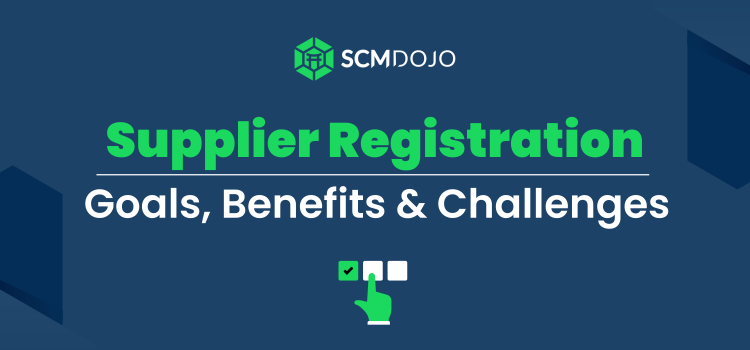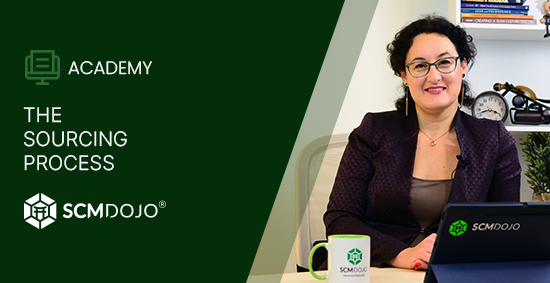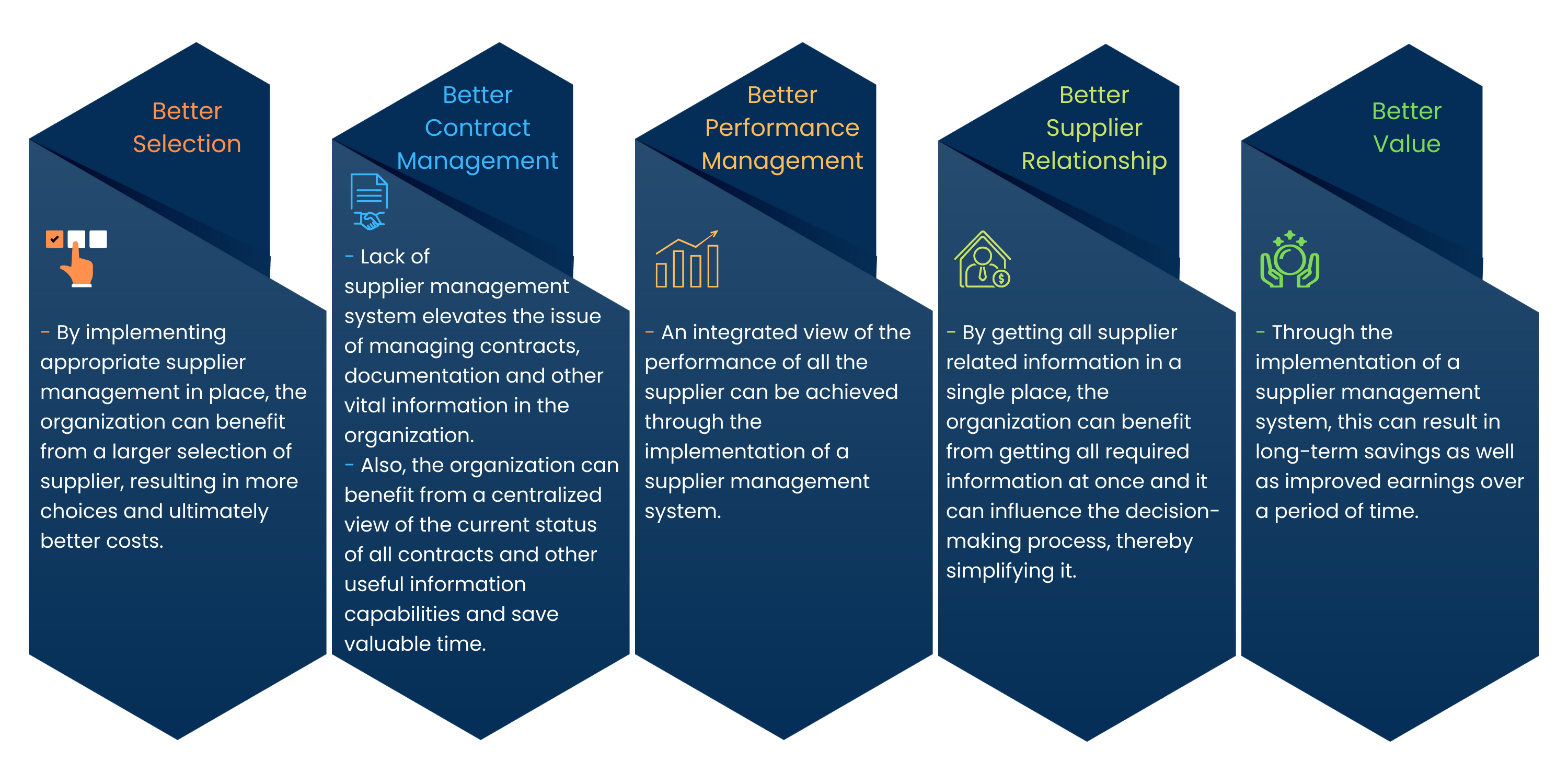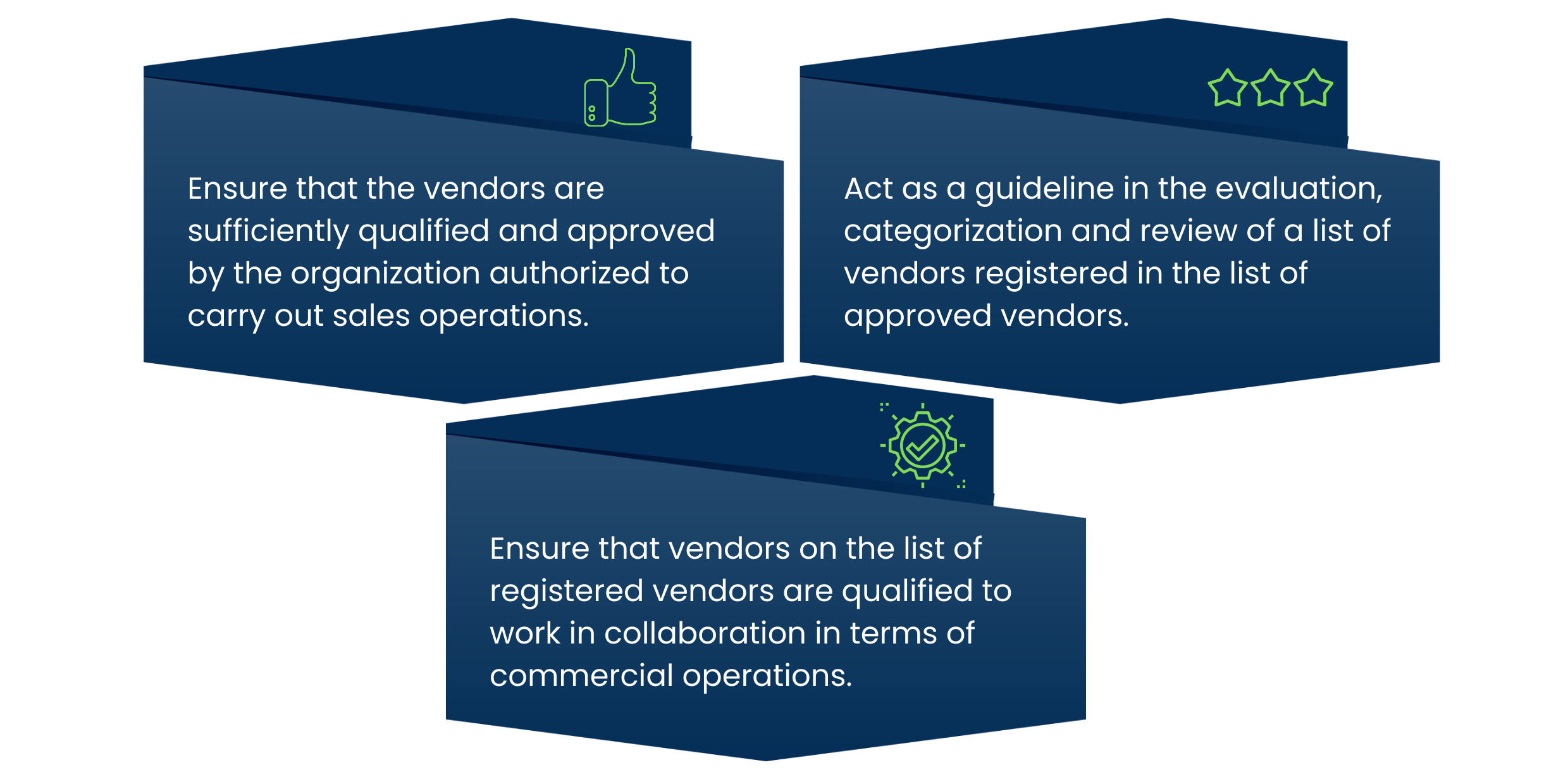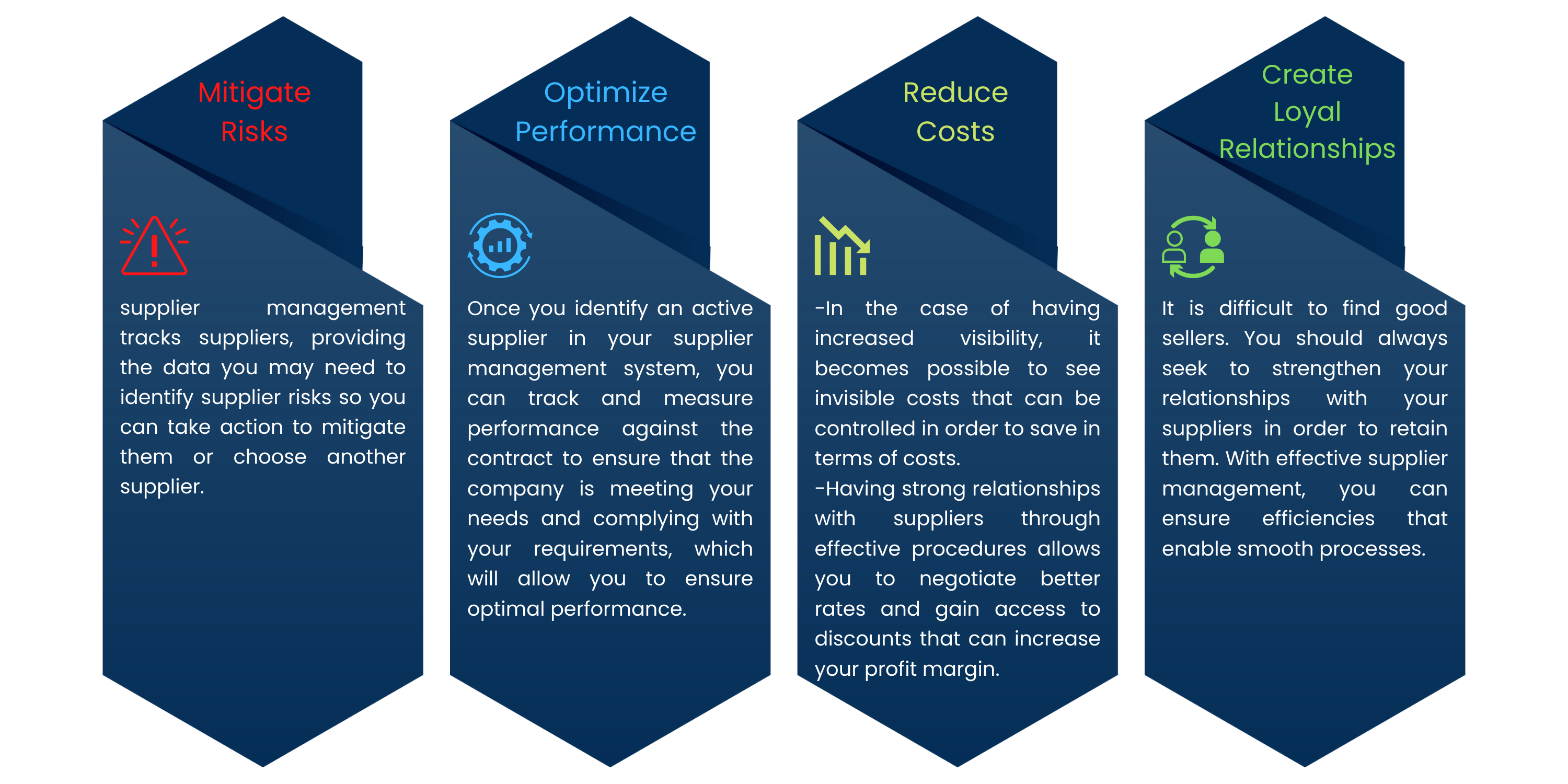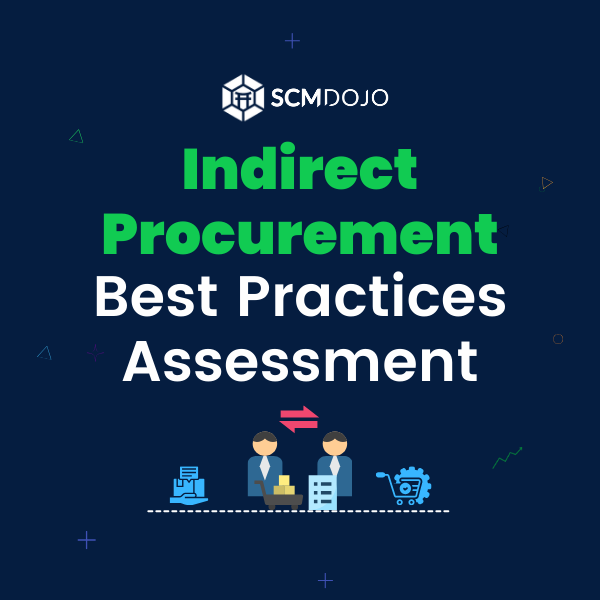The purchasing department purchases different types of goods and services. However, when you buy something, you may not always know all the suppliers that offer a particular product. Then the Supplier registration form comes in handy.
You probably only know a handful of providers. This means that every time you host a sourcing event, the same suppliers bid on the same products at the same prices. There is no variety, and you may miss out on business opportunities.
A database of suppliers offering different types of goods and services means you can invite more suppliers to your event whenever you’re ready to buy something. This can lead to dual sourcing and more competition among suppliers, ultimately reducing procurement costs and ensuring higher product quality.
At this point, we recommend taking the course on The Sourcing Process, where Maryna Trepova explains in detail 7 Steps of the sourcing process, Make or Buy decision, Approaches to tendering process, Key process for obtaining quotations and tenders, Pre-qualification evaluation and Awarding criteria
So, where does the Supplier registration fit in? First, let’s discover what Supplier Registration is.
What is Supplier Registration?
The Supplier Registration Form is a document used to collect information from suppliers. Traditionally, supplier information was collected and stored on paper, but today’s procurement software greatly facilitates this process.
Supplier registration involves gathering critical information from external suppliers of goods and services and entering this information into a relationship management system. The registration systems are usually electronic or internet-based but can also be processed in the paper. Registration is a threshold requirement to differentiate between qualified and unqualified providers.
Each prospect has its operating standards to drive the supplier qualification process. Some clients may handle confidential information or interact with well-known clients. Other clients may deal with vulnerable people who need permission or background permission. Suppliers must meet standards set by the customer or the customer’s industry and often must manage adherence to standards throughout the relationship.
Registration is the first step in supplier management. It requires a standard list of information from any supplier wishing to provide goods or services. This information is checked for completeness and compliance and entered into the system. The client’s purchasing staff or other employees can then use the system to determine which suppliers are on the approved list to bid on opportunities.
Figure 1: The Benefits of the Supplier Registration
Figure 2: The 3 Main Goals of the Supplier Registration Procedure
Must Have Elements in Supplier Registration Form
The Supplier Registration Form is a document containing essential information classified as follows:
1. The Company Contact Section must include :
- Company Name
- Contact
- Mailing Address
- Website
- Other Elements
2. The Company Overview Section includes the following elements :
- General details of Services/Goods
- Date company established
- Gross annual sales
- Geographic service area
- Legal structure
- Business Type
3. The Banking Information Section
4. The Certification Section
What are The Success Factors in Managing Supplier Registration?
Supplier management is crucial to the success of any organization in any industry.
To help understand precisely why, we can break this down into four crucial reasons why Supplier management should be a top priority for the organization.
Figure 3: Success Factors of the Supplier Registration Management
Challenges in Deploying Supplier Registration
Despite the many advantages of Supplier management, certain challenges must be overcome to ensure better functioning of the organization.
Indeed, an organization can face many challenges if Supplier management is not implemented correctly.
They are the following:
- Supplier Compliance Risk: Setting up standards before dealing with Suppliers can save time and money. Not all Suppliers can perform to your standards. Therefore, choosing the right provider among several that meet your organizational standards and criteria while promising excellent performance is important.
- Supplier Reputation Risk: Dealing with multiple Suppliers is not an easy task. Especially since the quality of the work must be assessed upstream before concluding a contract, something that complicates the process.
While some providers may do your job very well, others may put up with poor performance and throw all your deadlines into a spin. Therefore, background checks are a must before any selection. This can give you insight into vital points that you may have missed in the first place.
- Lack of Visibility: While having a centralized data storage solution to manage supplier data is important, it provides the organization with a centralized view and better visibility, leading to better resource allocation and increased efficiency.
- Supplier Data Storage: As the organization grows, it becomes essential to have a Supplier data storage solution. Without a Supplier management system, storing and retrieving data is difficult since you may be dealing with multiple Suppliers for multiple projects simultaneously.
- Supplier Payment Risk: Some Suppliers impose different payment terms, while others may adhere to industry standard terms. Determining terms and ensuring payment is made on time is considered one of the main issues, especially when dealing with multiple suppliers simultaneously.
The Best Practices & Techniques
There are techniques and best practices that can make the organization’s Supplier management even more effective such as the following ideas :
- Convey your expectations clearly
- Ensure you set realistic and achievable deadlines
- Collaborate with your Suppliers to maintain long-term relationships
- Establish KPIs (Key Performance Indicators) to measure Supplier Performance
- Assess Supplier Risks to enable its minimization
In Summary
It is important to know that, Supplier management is important for several reasons. On the one hand, Supplier management plays a key role in selecting the right Supplier for a specific business requirement. In addition, companies can use Supplier management to achieve business goals, such as taking advantage of cost-saving opportunities and taking steps to speed up the onboarding process.
Suppliers must also be managed effectively to reduce the risk of supply chain disruption and ensure that the goods and services provided are delivered on time and of the expected quality. Additionally, an effective Supplier management process can help companies develop closer relationships with suppliers, which in turn can lead to opportunities to negotiate better prices.
In conclusion, your suppliers are critical to the success of your business. You drive new growth in your industry and ensure you can achieve your sales and profit goals. You are at the center of your organization’s many processes and activities.
However, you may not have considered the importance of effectively managing your relationship with them. In the past, procurement was just the department that bought goods and services, no more and no less.
But purchasing should now be considered part of your overall business strategy. For maximum value for money, you should take a strategic approach to managing your suppliers effectively. This will have countless positive effects.
References
About the Author- Dr Muddassir Ahmed
Dr MuddassirAhmed is the Founder & CEO of SCMDOJO. He is a global speaker, vlogger and supply chain industry expert with 17 years of experience in the Manufacturing Industry in the UK, Europe, the Middle East and South East Asia in various Supply Chain leadership roles. Dr. Muddassir has received a PhD in Management Science from Lancaster University Management School. Muddassir is a Six Sigma black belt and founded the leading supply chain platform SCMDOJO to enable supply chain professionals and teams to thrive by providing best-in-class knowledge content, tools and access to experts.
You can follow him on LinkedIn, Facebook, Twitter or Instagram

